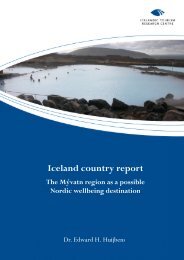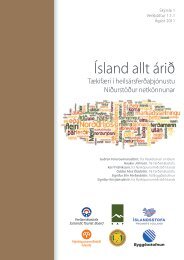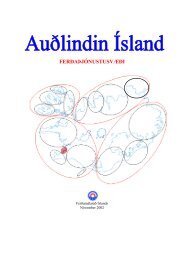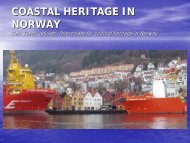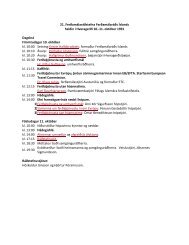Untitled
Untitled
Untitled
You also want an ePaper? Increase the reach of your titles
YUMPU automatically turns print PDFs into web optimized ePapers that Google loves.
seems unlikely that neo-liberalism has come to an end, not least because<br />
the dominant institutional framework is still very much neo-liberal.<br />
It is also on this social landscape that the success story of tourism<br />
becoming one of the biggest industries ever, must be placed. It is rare to<br />
find a national or regional tourism plan, a book or article about tourism<br />
that does not include references to the substantial growth of tourism and<br />
that presents it as one of the most remarkable economic and social<br />
phenomena of the past century. The size and number of tourists and tourist<br />
destinations has continued to grow exponentially. This further suggests<br />
that for the time being tourism is likely to continue to have both capitalism<br />
and neo-liberalism as two of its nearest neighbours. For those countries<br />
that are dependent on tourism as a source to obtain foreign currency, the<br />
road is paved for investing high hopes in tourism as a money-making<br />
rescuer (see e.g. Jóhannesson & Huijbens, forthcoming).<br />
Conceived of as an ideology, a “tour-ism”, it fits often rather well<br />
with capitalism and neo-liberalism in that both feed upon and privilege<br />
mobility and consumption. In the past these ideological affinities have<br />
meant an orientation of tourism research towards topics like product<br />
innovation and development, public and private partnerships, how to<br />
commodify and maximise the potential of regional assets such as landscape<br />
and environment, local culture and identity, service diversification,<br />
marketing, growth and productivity in order to help tourism destinations<br />
and operators enhance their businesses, competitiveness and being able to<br />
better face capitalist competition.<br />
What the future has in store is not easy to tell. It seems however<br />
quite unlikely that trans- and multinational corporations and those with an<br />
economic or political interest in promoting capitalism across the globe will<br />
be the first to acknowledge that selling places through “tour-ism” may also<br />
involve:<br />
actual social risks. The transformation of a place into a commodity<br />
requires symbolic erasure of the untidy, the uneventful and the plain –<br />
and directly precedes other more violent types of cultural and historical<br />
revisions (Hunter 2008, p. 364, see also Huijbens forthcoming).<br />
73





